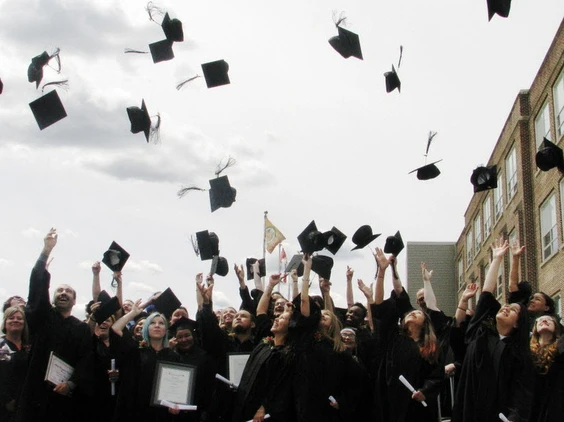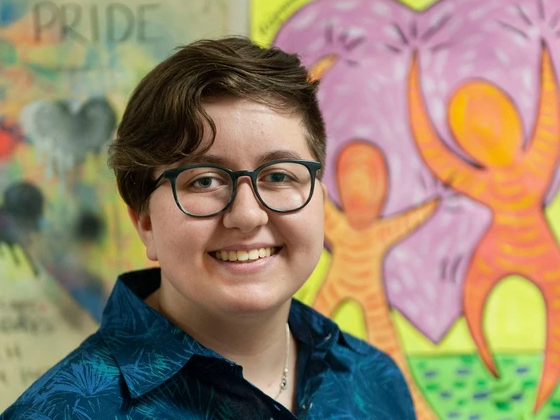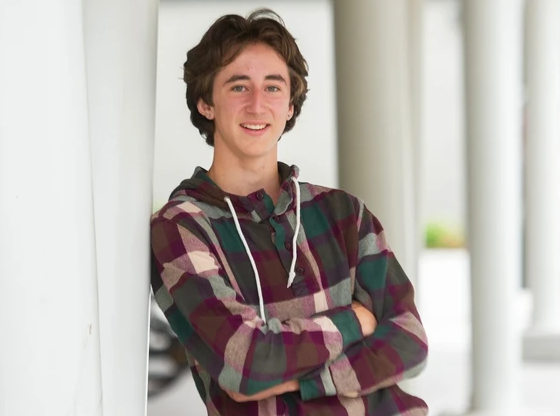Members of our youngest generation, about to graduate from high school, speak about careers, gender, relationships and the future. Their answers might surprise you.

With 2.4 billion gen-Zers on earth, how they approach social and economic issues will have a major impact on our global future. PHOTO BY REG CLAYTON /Daily Miner and News
By Lori Culbert, Vancouver Sun.
They may still be young, just ages 11 to 26, but gen-Z is on track to be the largest generation on the planet and to represent more than a quarter of the workforce by 2025.
This group, born between 1997 and 2012, has grown up in the shadow of social media, climate change fears and the COVID-19 pandemic, and numerous experts say they’ve developed different priorities than older generations.
And with 2.4 billion gen-Zers on Earth, how they approach social and economic issues will have a major effect on our global future.
We spoke with Grade 12 students across Metro Vancouver who are graduating this month to learn what they did in high school compared to their parents’ generation, and what’s important to them when it comes to careers, relationships, having fun, and making the world a better place.
“If you look at it from a university perspective, like after high school, I think our generation is super open-minded, which I admire a lot. I think a lot of people are very OK with the fact that they have no idea what they want to do,” said Nargess Shokouhian, a Grade 12 grad from Handsworth Secondary in North Vancouver.
“A lot of our friends are taking a gap year, taking a year to travel and work. I think that’s definitely very, very different from our parents’ generation.”
Shokouhian, who is heading to the University of B.C. to study political science in September, laughs as she admits she’s not an example of teens waiting to pursue academics until they are ready. But, she argued, she shares a commonality with her peers: making decisions and pursuing opportunities based on what makes her truly happy, rather than the expectations of older generations.
“In the past couple of years, I’ve realized that we definitely do (prioritize) happiness, what makes us satisfied, and the things we’re passionate about,” the 18-year-old said.

Nargess Shokouhian, outside Handsworth Secondary in North Vancouver. PHOTO BY ARLEN REDEKOP /PNG
A study of 36,000 people around the world, commissioned by the New York-based BCW communications firm, found 43 per cent of gen-Zers sought every chance to have fun and thought it was important to do things that give them pleasure, far higher than any other generation.
But don’t dismiss this cohort as flaky and unmotivated.
“Members of gen-Z are more racially and ethnically diverse than any previous generation, and they are on track to be the most well-educated generation yet,” said a recent survey by the Pew Research Centre in the U.S.
The students we spoke with had big life goals, and thoughtfully discussed topics such as entering business, tackling climate change and encouraging young girls to have louder, stronger voices.
“That’s one of the biggest issues I’m very passionate about: mentorship, leadership, and empowering women and youth into finding what they really want to do, and understanding that taking up space is important for them,” said Paige Cheng, a Grade 12 student at Britannia Secondary. “It’s been really amazing to see the growth and development, especially in young leaders.”
Gaining much attention in the U.S. is the new book Generations by Jean Twenge, a psychology professor at San Diego University, which says gen-Zers are more inclined to take their time when deciding on major life steps, such as marriage and careers, compared to their predecessors.
Twenge did not respond to an interview request, but the New York Times said her research showed gen-Zers are “content to get their driver’s licences later than earlier generations. As high school seniors, they are less likely to do the things associated with adulthood and independence, like drinking alcohol, working for pay, or having sex.”
Members of gen-Z grew up with protective parents and with social media often propelled by division and anger, which in some created an aversion to risk. This resulted in fewer of today’s youth doing drugs, getting into fights or causing car accidents, said the Times’s synopsis of Twenge’s research.
Twenge’s findings also echo those of organizations such as the Canadian Institute for Health Information, which says mental health issues are on the rise with this generation.

Krishna Verma outside Johnston Heights Secondary in Surrey. PHOTO BY ARLEN REDEKOP /PNG
Determined to overcome barriers
Mental health is one of the “glaring issues in modern society,” along with climate change, discrimination, and financial inequity, said Krishna Verma, a Grade 12 student at Surrey’s Johnston Heights Secondary. He believes his generation is beginning to earn the trust of older age groups to start to address some of these challenges.
Verma has been accepted to study science at both SFU and UBC and, raised in a lower-income family, he said the main reason he can afford to go to university this fall is because he won two major scholarships. While in high school, he participated in Model UN, played on several sports teams, and ran a charity that operates food drives and hands out sandwiches in impoverished neighbourhoods.
Immigrating to Canada from India when he was seven years old taught Verma an early lesson about racism and language barriers; a decade later, technology has allowed him to learn about global citizenship both at home and abroad.
“We are the generation, in my eyes, that are the ones dealing with all the previous barriers that other generations created,” he said.
A barrier this generation is starting to dismantle is discrimination against LGBTQ+ communities.
The proportion of gen Z members who identify as transgender and nonbinary, at 0.79 per cent, is up to seven times higher than in older age groups, according to a 2022 Statistics Canada report. Younger generations may be more comfortable talking about their gender, the report said, in part due to evolving acceptance and also because the internet has provided “virtual support communities and answers to questions that were less accessible to older generations.”

Nik De Leon at Kitsilano Secondary school in Vancouver. PHOTO BY JASON PAYNE /PNG
Nik De Leon, who identifies as omnisexual and gender fluid, is a member of the Pride Club at Kitsilano Secondary and helped organize the Diversity Equity and Inclusion youth conference in April. The conference theme was self-healing and learning coping mechanisms to handle stress. “It was all about learning how to heal yourself while continuing to work on solving problems around the world,” said De Leon, who will study nursing at the University of the Fraser Valley this September.
Society needs to talk more about key issues, such as sexual harassment or discrimination, to get past stereotypes and come up with complex solutions, the 17-year-old said.
“I think this younger generation is seeing that, and they can see in their future it’s going to affect them even more when they go into adulthood,” they said. “For me, it’s hard to sit back and watch when I know that I could be out there helping and I could be doing something about it.”
When asked about Twenge’s finding that gen-Z is not in a rush to date, De Leon said it may be because their peers have received a lot of education around consent to sex and what a healthy relationship looks like.
“I think people have realized that what builds good relationships is taking the time to build yourself up first,” they said.
In the future, De Leon imagines being a foster parent. “There’s such a need. There’s all of these kids who … don’t have someone who’s reaching out to give them a little love.”
Statistics Canada says the number of children that women are having has been on a steady decline over the past 15 years, and that gen-Zers want the fewest babies of any age group: an average of 1.35 each. The #childfreemovement is very trendy on TikTok, often fuelled by young adults’ concerns about affordability and climate change.
“I know people that don’t even want to have kids in the future. They just maybe want to adopt,” said Fleetwood Park secondary grad Kate Doan.
Doan, 17, immigrated to Canada from Vietnam when she was 10. At her Surrey high school, she was a student council member, was on the grad organizing committee, fundraised for charity, and met with the school board as a Fleetwood Park student representative.
One of the things she pushed for was better mental health support for students, a need that became more prevalent with pandemic restrictions.
“This generation is a lot more open” about psychological struggles, said Doan, who is going to UBC to study science. “But I noticed that a lot of my friends, and even me, sometimes we don’t feel comfortable opening up to our parents or people in the family from a different generation.,”
A recent article by the B.C. Schizophrenia Society said less than half of gen-Zers said their mental health was very good or excellent, and argued the group “has had it rough” with childhood exposure to “9/11, economic crashes, polarized political views, gun violence, growing concerns about climate change, and … the COVID-19 pandemic.” But, the article noted, “Gen Z is more open and willing to discuss mental health than any other generation we’ve seen to date.”

Charlie Caddick outside Handsworth Secondary in North Vancouver. PHOTO BY ARLEN REDEKOP /PNG
Shokouhian, along with fellow Handsworth Secondary student Charlie Caddick, spoke before the North Vancouver school board to change their official school plan to include more about protecting students’ mental health.
“Even between friends, (mental health) is not something that people like to open up about. So I think having it written in an administrative piece was really a big step,” said Shokouhian, 18, who immigrated to Canada from Iran in Grade 5.
Work-life balance a priority
Although she took a heavy course load in high school, she balanced that with extracurriculars that she loved: student council, year book committee, Grade 8 retreat leader, city youth festival volunteer, and working as a tennis coach.
“From my peers, there’s been a lot of stress and anxiety surrounding academics and getting into university,” she said. “Going through five years of that has really taught me that academics isn’t really the most important thing, and that there definitely needs to be a balance.”
Caddick, 17, is encouraged that members of his generation are trying to find that balance, so that when they’re applying to post-secondary schools it’s not just about their marks, but their other achievements, too. The university where he will be studying business in September, St. Francis Xavier University in Nova Scotia, puts significant stock in his extra activities, which include being on student council, acting in several drama productions and working as a ski instructor.
“It’s a lot more about the person, rather than just the number and the grades,” he said. “And I think it’ll lead to a lot more people getting into what they want to do.”
A 2023 Deloitte study of 14,483 gen-Zers in 44 countries found that while half the members of this generation say their jobs are central to their identity, a work-life balance is crucial.
And part of that balance comes from finding employment that makes them happy and fulfilled.
Caddick, for example, hopes to one day use his business degree to help tackle climate change.
“Business, that’s where all the climate problems originated from,” he said. “So if I can get to somewhere where I can have a bit of control and make an influence on that, then that is really important.”

Duncan Murch outside Handsworth Secondary in North Vancouver. PHOTO BY ARLEN REDEKOP /PNG
Climate change was among the top three societal concerns identified by gen-Zs, Deloitte found, but the No. 1 was the high cost of living, with half saying they lived paycheque to paycheque.
Indeed, Handsworth grad Duncan Murch, who will study commerce at UBC this September, hopes he can one day raise a family in North Vancouver, but because it’s so expensive, he envisions having to work elsewhere and then save money before moving home again.
Mixed feelings about social media
Murch, 17, had a busy schedule in high school as co-president, along with Shokouhian, of Handsworth’s student council. He’s acted in drama programs in school and in the community, and played several sports, including competitive ultimate Frisbee.
But he still found himself wasting time on TikTok and other social media obsessions, something that worries him about his generation.
“I think technology is really useful when it’s being involved in your work and business. But I’m talking about all these kids who are so passionate about so many things, and they have motivation until they download TikTok and spend hours scrolling through that,” said Murch, who recently deleted the app from his phone.
He worries about the negative effects of young children watching inappropriate content and of artificial intelligence on the problem-solving capabilities of future generations. “I’d say the negatives probably outweigh the positives,” Murch said.
The Deloitte study found gen-Zers “have mixed feelings about social media’s impact on their mental health,” with half saying it is positive and 40 per cent saying it makes them feel lonely or inadequate.

Paige Cheng at Britannia Secondary, where she played volleyball. PHOTO BY ARLEN REDEKOP /PNG
This generation has grown up bracing themselves against toxic and mean comments on social media, but they’ve also used it as a platform to share their views and find other like-minded people for social justice campaigns such as Black Lives Matter.
Cheng said it is important to her and her peers to attend marches and rallies to “speak up for what they believe in,” and she hopes that will set the stage for younger kids to do the same. “I think that’s really important because the work is never done,” she said.
Growing up in the Chinatown-Strathcona neighbourhood, Cheng said she is proud of how her fellow Britannia grads have overcome obstacles to complete Grade 12. “It’s really amazing, because I know that they’ve all hit their goals in one way or another. And I’m really proud of the adversities that they’ve overcame.”
Cheng, who won a major scholarship that she will use to study business at UBC, was an overachiever during her high school years as co-president of the Vancouver District Student Council, a competitive volleyball player, a service club volunteer and a paid camp leader. But she has yet to get her driver’s licence.
“When I was younger, I told myself, ‘I’m going to get my driver’s licence right away. I’m going to do this super quickly.’ I still don’t have my driver’s licence,” she laughed.
She got her learner’s permit at 16 but it has expired. Now 18, she plans to renew it and learn to drive this summer.
“My friends, I can tell that they’ve been holding off too,” she said. “I think public transport has become a really big thing with students. So (getting a licence) hasn’t become a huge priority in our lives.”
What has been a priority for Cheng is the Girls Who Leap program, a mentorship initiative for girls in Grades 6 to 12.
“Through that program, I’ve been able to learn to empower myself, how to become more assertive, and really speak my truth and find my value and purpose in what I’m doing,” she said, adding she is now a leader for the younger girls.
Cheng, like many of the youth interviewed for this story, is understandably a bit fuzzy on what exactly her future will look like.
She’d like to work with children, likely in the non-profit sector. She wants to own a dog. And she vows to keep in touch with old friends, learning a hard lesson during the pandemic about how tricky it is to maintain friendships when you can’t see each other.
“We’re stronger now and we know how to find better ways to communicate, even if we’re far apart,” she said.
“I think we’ll be OK in the future.”